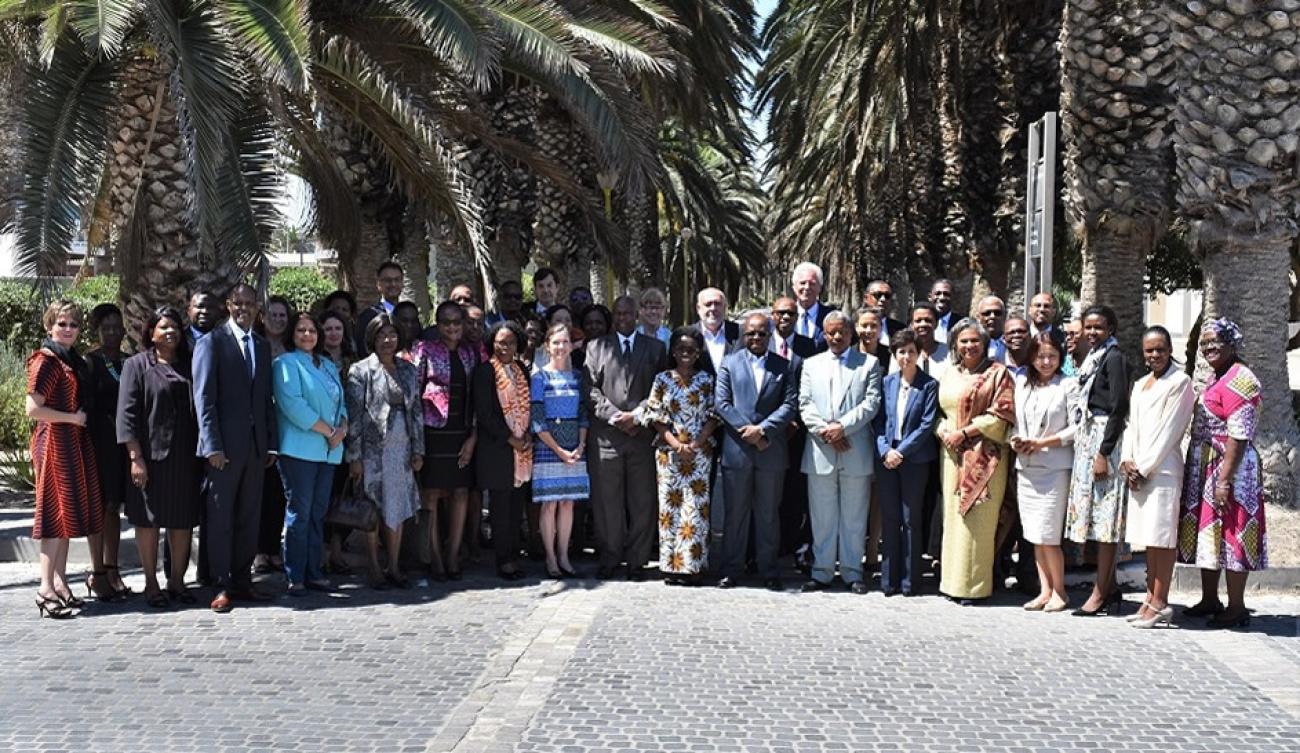Lesotho participates at the MICs Experience Sharing Forum in Namibia

The meeting discussed countries’ perspectives on issues that despite economic growth, absolute and relative poverty, low human development and high unemployment
The Government of Lesotho and UN Lesotho participated at the experience sharing forum in Namibia as part of the Strategy of Support for Middle-Income Countries of the Regional UN Development Group (R-UNDG). MICs in Southern Africa - Botswana, Lesotho, Namibia, South Africa and Swaziland (BLNSS) met together to enhance understanding of implications, opportunities and constraints of being MICs, share experiences bilaterally and the countries on innovations in MICs and identify areas of possible collaboration.
Other challenges experienced by middle income countries include limited diversification of the economy and access to international markets; demographic transition (youth bulge) and challenges in ensuring productive employment opportunities, resulting in underemployment and unemployment; rural–urban migration and the rapid growth of informal settlements in urban centers; gaps in human capital and high dependence on external experts; environmental concerns, with economic growth in many middle-income countries often accompanied by environmental degradation and rising greenhouse gas emissions, posing challenges to the sustainability of long-term development as well as increased vulnerability to risk given limited national capacities for disaster risk management and social safety net provision; challenges related to foreign aid with some countries experiencing rapid decline in donor engagement immediately following graduation to middle-income status.
Recognizing that many middle-income countries face significant challenges, including in their efforts to achieve internationally agreed development goals, the General Assembly, through various resolutions has called upon the United Nations development system to provide appropriate support for middle-income countries and to address the diverse development needs of MICs in a coordinated manner, informed by accurate assessment of national priorities using measures that go beyond per capita income. It is against this background that the R-UNDG for Eastern and Southern Africa and Western and Central Africa developed a Strategy of Support for Middle-Income Countries in the region.










